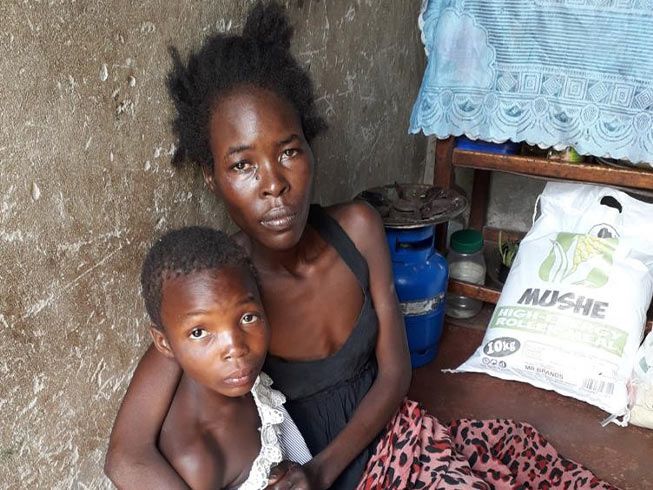Tanaka is 11, but her family is so poor that she only recently started going to school. Then her father, the main breadwinner of the family, died. His widow and children were in a desperate plight and struggled to get any food. Tanaka’s mother often did not eat at all, so that her starving children could have an extra mouthful or two. After a few weeks of nourishing food, all in the family were visibly regaining strength, even Tanaka’s emaciated mother.
This little family is in Zimbabwe, but the same hunger stalks many parts of southern Africa. Rains were good in some countries, but not in Swaziland (Eswatini) or Madagascar.

Where Militant Violence Brings Hunger
Another place the rains missed was northern Mozambique, where the activities of brutally violent Islamist militants have badly affected normal livelihoods. Terrorist attacks against Christians in Ituri province of DRC (Democratic Republic of the Congo) have created an “emergency-level” food crisis in isolated places.
In southern Madagascar, famine is imminent. Children have abandoned school, and spend their time begging or foraging for food – leaves, seeds, even cactus mixed with mud.
Devastating Lockdowns
The impact of Covid-19 lockdowns last year was devastating: urban people could not work, and rural people could not farm. Earning nothing in 2020 means nothing to spend during the lean season of early 2021.
In Zimbabwe, a new lockdown was imposed on January 2. What good are the longed-for and prayed-for rains if people cannot plant or tend their crops?
From Christians, Through Christians, to Christians
It looks as if 2021 will be even tougher than 2020. But through our network of local churches and Christian ministries, Barnabas Aid is sending help for hungry Christians in southern Africa.
Please save our Christian brothers and sisters.
Prices vary, but typically a 55-pound sack of maize meal (mielie meal), a staple food, costs just $10.